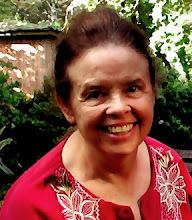

In 2004, at age 66, soon after leaving Honduras as a Peace Corps health volunteer, I started a brand new career as an on-call Spanish interpreter, something I’d never done before. Previously, I’d worked in social work, juvenile probation, social policy research, and for an occupational therapy association. I already knew Spanish before going to Honduras since, admittedly, it would have been hard to gain sufficient fluency at my age with just Peace Corps exposure. Interpreting was a flexible job allowing me to spend ample time with my ill mother before her death. As a self-employed interpreter, I’ve also been free to leave during my annual month-long trips to Honduras (eight so far) for health and education projects partly supported by sales of my book (title below). I do written translations as well, but prefer face-to-face encounters. At age 74, I’m still working as an interpreter and translator several days a week. Readers examining their own backgrounds may find they also have hidden talents they’ve never thought of using before.
I started out interpreting in immigration court, but soon came to prefer a more interactive role with clients. So, I now work in hospitals, schools, and social service settings with people from every Spanish-speaking country, entering their lives briefly, but intensely. I’ve helped families with children undergoing painful organ and bone marrow transplants, mothers with premie babies small enough to fit into your hand, and kids with congenital anomalies such as eye tumors and missing intestines, as well as a pregnant woman with terminal brain cancer, patients with end-stage kidney and liver disease, and roofers permanently paralyzed in falls.
My sheer presence as their interpreter has comforted folks facing crises both medical and familial. I still recall a 12-year-old girl, ready to give birth, whose mother claimed she’d never noticed the pregnancy and couldn’t imagine how it could possibly have happened as her daughter had never left the house unescorted.
The youngster steadfastly refused to name the father. I secretly suspected the step-father, since the girl admitted to sleeping with the parents in the same bed. The mother’s steady veneer of denial seemed to crumble as we left the child welfare agency when she suddenly leaned heavily against my shoulder, letting out a sigh that was almost a sob.
I feel especially for kids left behind by parents who arrived in the States years before. When parents finally send for these youngsters, they often join siblings born in this country. I remember a 14-year-old boy, recently reunited with his mother and U.S.-born half-sister. Placed in a class with much younger students after never having attended school or learned English, not surprisingly, he became truant, leading to a juvenile court hearing. His mother felt distraught after investing so much money and effort in their long-anticipated reunion. The boy was resentful of his sister and her time with their mother, and refused to sit in a classroom where he felt too old and out-of-place. The mother, struggling to maintain her family as a single parent, had been obliged to engage a lawyer and to miss work to accompany her son to court.
I met another teenage boy, this one from Honduras, being held in juvenile detention after squatting in an empty house, charged with causing water damage from a burst pipe. He had crossed the border alone in search of his parents, but was now being deported without ever having found them. When his public defender told him that his family could not be located, nor could she stop his deportation, he still thanked her for her efforts, asking if he could please hug her. They embraced while a guard and I stood awkwardly by. It was a poignant moment highlighting the tragedy of internationally divided families. In Honduras, I’ve often heard radio spots exhorting parents not to go north leaving their kids behind, but some parents consider it their only chance to provide for them.
All these experiences have kept me continually connected with Latin Americans on a level of intimacy rarely available to most Americans or to other Latinos either, for that matter. Read more about it in my book, Triumph & Hope, Golden Years with the Peace Corps in Honduras, and on my blog, http://honduraspeacecorps.blogspot.com
Leave a Reply